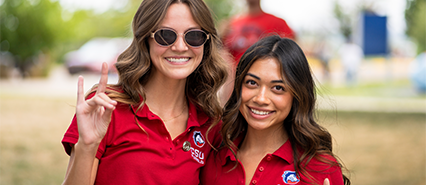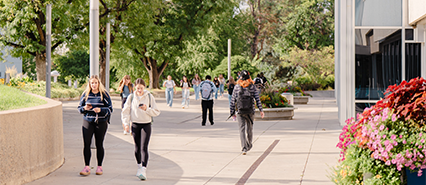Professor examines rate and predictors of reproducibility
Release Date: September 11, 2015
Press Release
PUEBLO –A marketing professor at Colorado State University-Pueblo is one of 270 researchers investigating the reproducibility of psychological science studies, a topic which now is receiving significant national media attention.
Dr. Justin Goss, an assistant professor of marketing in the Hasan School of Business, was published in a recent issue of Science Magazine along with his 269 co-authors. Launched nearly four years ago, the Reproducibility Project: Psychology has produced the most comprehensive investigation about the rate and predictors of reproducibility in a field of science. The project conducted replications of 100 published findings of three prominent psychology journals. The Reproducibility Project is the first big systematic attempt to answer questions that have been vexing psychologists for years, if not decades. What proportion of results in their field are reliable?
In the last month alone, the study has been featured in Science Magazine as well as The Atlantic, NYC Today, and Nature World Report.
The researchers found that regardless of the analytic method or criteria used, fewer than half of their replications produced the same findings as the original study. The result, Goss said, is that we should not be so quick to accept the results of single psychological experiments as fact. Although 97 percent of the 100 studies originally reported statistically significant results, just 36 percent of the replications did.
Goss said science is unique from other ways of gaining knowledge by relying on reproducibility to gain confidence in ideas and evidence. Reproducibility means that the results recur when the same data are analyzed again, or when new data are collected using the same methods.
“Reproduction of previous work should be the first step in most scientific endeavors,” Goss said. The team emphasized that a failure to reproduce does not necessarily mean the original report was incorrect. Many reasons exist why two attempts to run the same experiment might produce different results. There’s random chance. The original might be flawed. So might the replication. There might be differences in the people who volunteered for both experiments,or the way in which those experiments were carried out.
For more information on the study, contact Goss at justin.goss@csupueblo.edu or 719.549.2095.
Colorado State University - Pueblo is a regional, comprehensive university emphasizing professional, career-oriented, and applied programs. Displaying excellence in teaching, celebrating diversity, and engaging in service and outreach, CSU-Pueblo is distinguished by access, opportunity, and the overall quality of services provided to its students.


